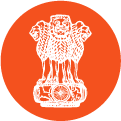Specific Subject | Topics |
Engineering Mathematics | Matrix Algebra, Eigen values and Eigen vectors, Theorems of integral calculus, Partial derivatives, Maxima and minima, Multiple integrals, Stokes, Gauss, Green’s theorems, The first-order differential equation (linear and nonlinear), Cauchy’s and Euler’s equations, Complex variables, Taylor’s and Laurent’s series, Sampling theorems, Mean, Median, Mode, Standard deviation, Random variables, Discrete and Continuous distributions, Fourier transform, Laplace transform, Z-transform. |
Engineering Physics | Units for measurement, Description of Motion in One, Two, and Three Dimensions, Laws of Motion, Work, Energy and Power, Rotational Motion, Gravitation, Heat and Thermodynamics, Electrostatics, Electric Current, Magnetic Effect of Currents, Magnetism, Electromagnetic Induction, Alternating Currents, Electromagnetic Waves, Ray Optics, Optical Instruments. |
Engineering Drawing/ Engineering Graphics | Principles of orthographic projections, Projections of points, lines, planes, solids, Sections of solids, Isometric views, Auto-CAD. |
Engineering Mechanics | Equations of equilibrium in space and its application, first and second moments of area, simple problems on friction, kinematics of particles for plane motion, elementary particle dynamics, Generalized Hooke’s la,w and its application, design problems on axial stress, shear stress, and bearing stress, material properties for dynamic loading, bending shear and stresses in beams, determination of principle stresses and strains, analytical and graphical, material behavior and design factors for dynamic load. |
Thermodynamics | Classification and properties of fluids, incompressible and compressible fluids flow, the effect of Mach number and compressibility, continuity momentum and energy equations, normal and oblique shocks, one-dimensional isentropic flow, flow or fluids in duct with frictions that transfer, Flow-through fans, blowers, and compressors, axial and centrifugal flow configuration, design of fans and compressors. |
Theory of Machines | Kinematic and dynamic analysis of plane mechanisms, Cams, Gears, and epicyclic gear trains, flywheels, governors, balancing of rigid rotors, balancing of single and multicylinder engines, linear vibration analysis of mechanical systems, Critical speeds, whirling of shafts, flywheels, balancing of rotors and reciprocating machinery, balancing machines, governors, free and forced vibration of damped, undamped single degree of freedom systems, isolation, whirling of shafts, gyroscope. |
Fluid mechanics/ Hydraulic Machines | Fluid flow concepts, Transport theorem, Fluid kinematics, Potential flow, Governing equations of Fluid flow, Dimensional Analysis, Viscous flow, Boundary Layer flows, Turbulence, Closed conduit flows, Hydrodynamic lubrication, Free surface flow, Compressible flows, Hydraulic Turbines, Impulse and Reaction Turbines, Centrifugal and Axial flow pumps. |
Manufacturing Science | Foundry Technology, Melting furnaces, Special casting processes, Gating, and riser design, Casting defects, Arc welding, TIG, MIG, submerged arc, resistance welding, Gas welding, Flash butt welding, Solid-state welding, Welding metallurgy, Forming Technology, Powder metallurgy. |
Machine Drawing | Development and Intersection of surfaces, Conventional representation of machine elements, materials, surface finish, and tolerances, Sectional views and additional views, Drawing of Screw threads, locking devices, Fasteners, Keys and Cotters, Knuckle joints, Riveted Joints, Shaft Couplings, and Bearings, Pipe Joints, Assembly and production drawings. |
Materials Science | Basic concepts on structure of solids, common ferrous and nonferrous materials and their applications, heat-treatment of steels; non-metals- plastics, ceramics, composite materials, and nano-materials. |
Analog and Digital Electronics | Single-phase transformer – equivalent circuit, phasor diagram, tests, regulation, and efficiency, Three-phase transformers, connections, parallel operation, Autotransformer, Energy conversion principles, DC machines, types, windings, generator characteristics, armature reaction, and commutation, starting and speed control of motors, Single-phase, and Three-phase induction motors, principles, types, performance characteristics, starting and speed control, Starting motors, Servo and stepper motors, Synchronous machines Generators, performance, regulation, and parallel operation. |
Electrical Engineering | Single-phase transformer – equivalent circuit, phasor diagram, tests, regulation, and efficiency, Three-phase transformers, connections, parallel operation, Autotransformer, Energy conversion principles, DC machines, types, windings, generator characteristics, armature reaction, and commutation, starting and speed control of motors, Single-phase and Three-phase induction motors, principles, types, performance characteristics, starting and speed control, Starting motors, Servo and stepper motors, Synchronous machines Generators, performance, regulation, and parallel operation. |
Electronic Devices | Energy bands in Silicon, Intrinsic and extrinsic Silicon, Carrier transport in Silicon, diffusion current, drift current, mobility, and resistivity, Generation and recombination of carriers, p-n junction diode, Zener diode, tunnel diode, BJT, JFET, MOS capacitor, MOSFET, LED, PIN and avalanche photo diode, Basics of LASER. Device technology, integrated circuits fabrication process, oxidation, diffusion, ion implantation, photolithography, n-tub, p-tub, and twin-tub CMOS process. |
Control Engineering | Application of open-loop and closed-loop systems, Principles of feedback, Determination of transfer function by block diagram reduction method, Time-domain analysis of first and second-order systems, transient and steady-state errors, damping and oscillations, Routh and Nyquist techniques, Bode plots, root loci, Lag, lead, and lead-lag compensation, State-space model, State transition matrix, Controllability, and observability. |
Telecommunication Systems | Random signals and noise, probability, random variables, probability density function, autocorrelation, power spectral density, Analog communication, amplitude and angle modulation and demodulation systems, spectral analysis of these operations, superheterodyne receivers, elements of hardware, realizations of analog communication systems, signal-to-noise ratio (SNR) calculations for AM and FM, Fundamentals of information theory and channel capacity theorem, Digital communication systems, Pulse Code Modulation (PCM), Differential Pulse Code Modulation (DPCM), Digital modulation schemes, Amplitude, phase, and frequency-shift keying schemes, matched filter receivers, Bandwidth consideration and probability of error calculations for these schemes, Basics of TDMA, FDMA, and CDMA, Fundamentals of mobile communication, Fundamentals of optical fiber communication. |
Antenna and Wave Propagation | Antenna parameters, Radiation from a current element in free space, Reciprocity theorem, Resonant and non-resonant antenna, Effective length and aperture, beamwidth, directivity, radiation resistance, efficiency, polarization, impedance, directional characteristics of the antenna, and antenna temperature, Phased array antenna, Mechanism of radio wave propagation, Reflection, refraction, interference, and diffraction of radio waves, Theory of ground wave, space wave, sky wave, etc. |
Microwave Engineering | Waveguides, Waveguide components, Klystrons, Travelling Wave Tubes, Magnetron, Microwave measurements, Introduction to microstrip lines, Microwave network analysis, Microwave semiconductor devices, Monolithic microwave integrated circuits. |





